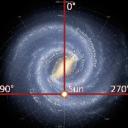Yahoo Answers is shutting down on May 4th, 2021 (Eastern Time) and the Yahoo Answers website is now in read-only mode. There will be no changes to other Yahoo properties or services, or your Yahoo account. You can find more information about the Yahoo Answers shutdown and how to download your data on this help page.
Trending News
What do Trinitarian Christians actually believe about the Trinity?
Is it:
1) There are three Gods that we call God?
2) There is One God the Father, and his Word/Son and the Holy Spirit, all of the same divine essence?
3) Something else.
Explain.
14 Answers
- Scarborough FairLv 75 years agoFavorite Answer
Annsan gave the concise definition. The Nicene Creed gives the longer definition.
I believe in one God,
the Father almighty,
maker of heaven and earth,
of all things visible and invisible.
I believe in one Lord Jesus Christ,
the Only Begotten Son of God,
born of the Father before all ages.
God from God, Light from Light,
true God from true God,
begotten, not made, consubstantial with the Father;
through him all things were made.
For us men and for our salvation
he came down from heaven,
and by the Holy Spirit was incarnate of the Virgin Mary,
and became man.
For our sake he was crucified under Pontius Pilate,
he suffered death and was buried,
and rose again on the third day
in accordance with the Scriptures.
He ascended into heaven
and is seated at the right hand of the Father.
He will come again in glory
to judge the living and the dead
and his kingdom will have no end.
I believe in the Holy Spirit, the Lord, the giver of life,
who proceeds from the Father and the Son,
who with the Father and the Son is adored and glorified,
who has spoken through the prophets.
I believe in one, holy, catholic and apostolic Church.
I confess one Baptism for the forgiveness of sins
and I look forward to the resurrection of the dead
and the life of the world to come. Amen.
- ?Lv 65 years ago
Because the trinity doctrine does not have roots based in Christianity or in the Bible's teaching, it is unbelievably hard to understand and its complexity varies depending on who you talk to!
For example, the New Encyclopædia Britannica says: “Neither the word Trinity, nor the explicit doctrine as such, appears in the New Testament, nor did Jesus and his followers intend to contradict the Shema in the Old Testament: ‘Hear, O Israel: The Lord our God is one Lord’ (Deut. 6:4). . . . The doctrine developed gradually over several centuries and through many controversies. . . . By the end of the 4th century . . . the doctrine of the Trinity took substantially the form it has maintained ever since.”—(1976), Micropædia, Vol. X, p. 126.
The New Catholic Encyclopedia states: “The formulation ‘one God in three Persons’ was not solidly established, certainly not fully assimilated into Christian life and its profession of faith, prior to the end of the 4th century. But it is precisely this formulation that has first claim to the title the Trinitarian dogma. Among the Apostolic Fathers, there had been nothing even remotely approaching such a mentality or perspective.”—(1967), Vol. XIV, p. 299.
In The Encyclopedia Americana we read: “Christianity derived from Judaism and Judaism was strictly Unitarian [believing that God is one person]. The road which led from Jerusalem to Nicea was scarcely a straight one. Fourth century Trinitarianism did not reflect accurately early Christian teaching regarding the nature of God; it was, on the contrary, a deviation from this teaching.”—(1956), Vol. XXVII, p. 294L.
According to the Nouveau Dictionnaire Universel, “The Platonic trinity, itself merely a rearrangement of older trinities dating back to earlier peoples, appears to be the rational philosophic trinity of attributes that gave birth to the three hypostases or divine persons taught by the Christian churches. . . . This Greek philosopher’s [Plato, fourth century B.C.E.] conception of the divine trinity . . . can be found in all the ancient [pagan] religions.”—(Paris, 1865-1870), edited by M. Lachâtre, Vol. 2, p. 1467.
John L. McKenzie, S.J., in his Dictionary of the Bible, says: “The trinity of persons within the unity of nature is defined in terms of ‘person’ and ‘nature’ which are G[ree]k philosophical terms; actually the terms do not appear in the Bible. The trinitarian definitions arose as the result of long controversies in which these terms and others such as ‘essence’ and ‘substance’ were erroneously applied to God by some theologians.”—(New York, 1965), p. 899.
- crosseyedLv 65 years ago
hi there
I just stick with scripture.
search every one describing who god is and you find
The Father is God (see John 6:27; Ephesians 4:6; 1 Peter 1:2)
The Son is God (see Mark 5:19-20; Luke 8:39; John 20:28)
The Holy Spirit is God (see Luke 4:18; John 14:16-17, 26; Ephesians 4:30)
There is One God (see Deuteronomy 6:4; Isaiah 43:10; 1 Corinthians 8:4)
this is what scripture says.
many call this teaching "trinity"
I find it unnecessary.
all these creeds dogma churchianity stuff is irrelevant. stick with scripture.
- Annsan_In_HimLv 75 years ago
That the one Being of God subsists in the three uncreated, co-equal persons of the Father, the Son, and the Holy Spirit.
That is the most concise way of summing up the Trinity doctrine that I am aware of.
- Peace WalkerLv 65 years ago
Jesus isn't God because he was tempted.
James 1:13
God cannot be tempted
Hebrews 2:14
He (Jesus) himself hath suffered being tempted, he is able to succour them that are tempted.
Jesus rejected being equal to God as well according to the Bible. Trinitarians ignore this because they think he was lying.
John 14:28
Father is greater than I
- Anonymous5 years ago
I believe the Triune nature of God is beyond my or anyone's ability to comprehend
But I don't have to fully understand something to accept it.
I don't fully comprehend quantum physics, but I accept it
- Jim VLv 75 years ago
1) There are three Gods that we call God?
No
One God
One essence of God.
That essence is expressed in three persons.








